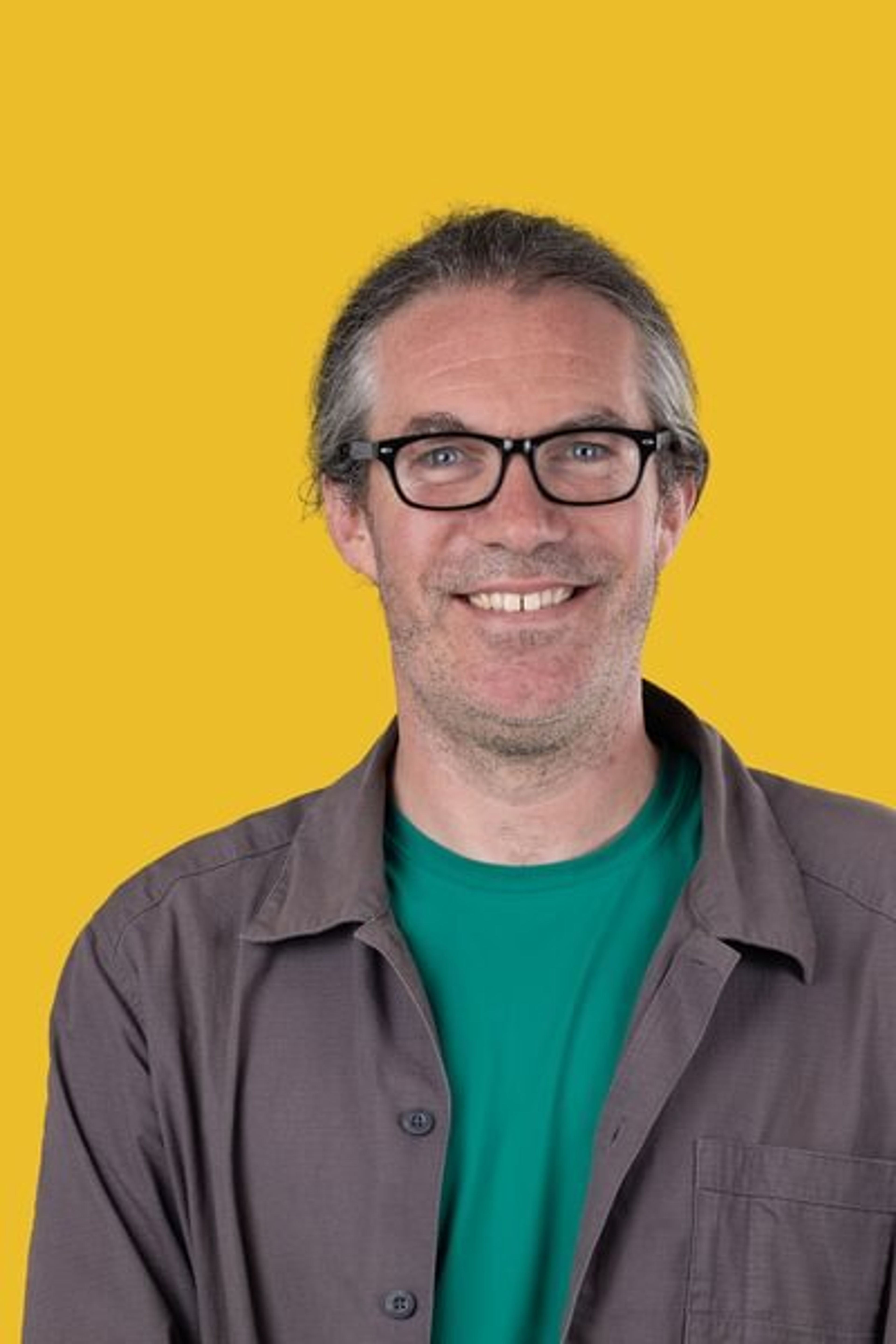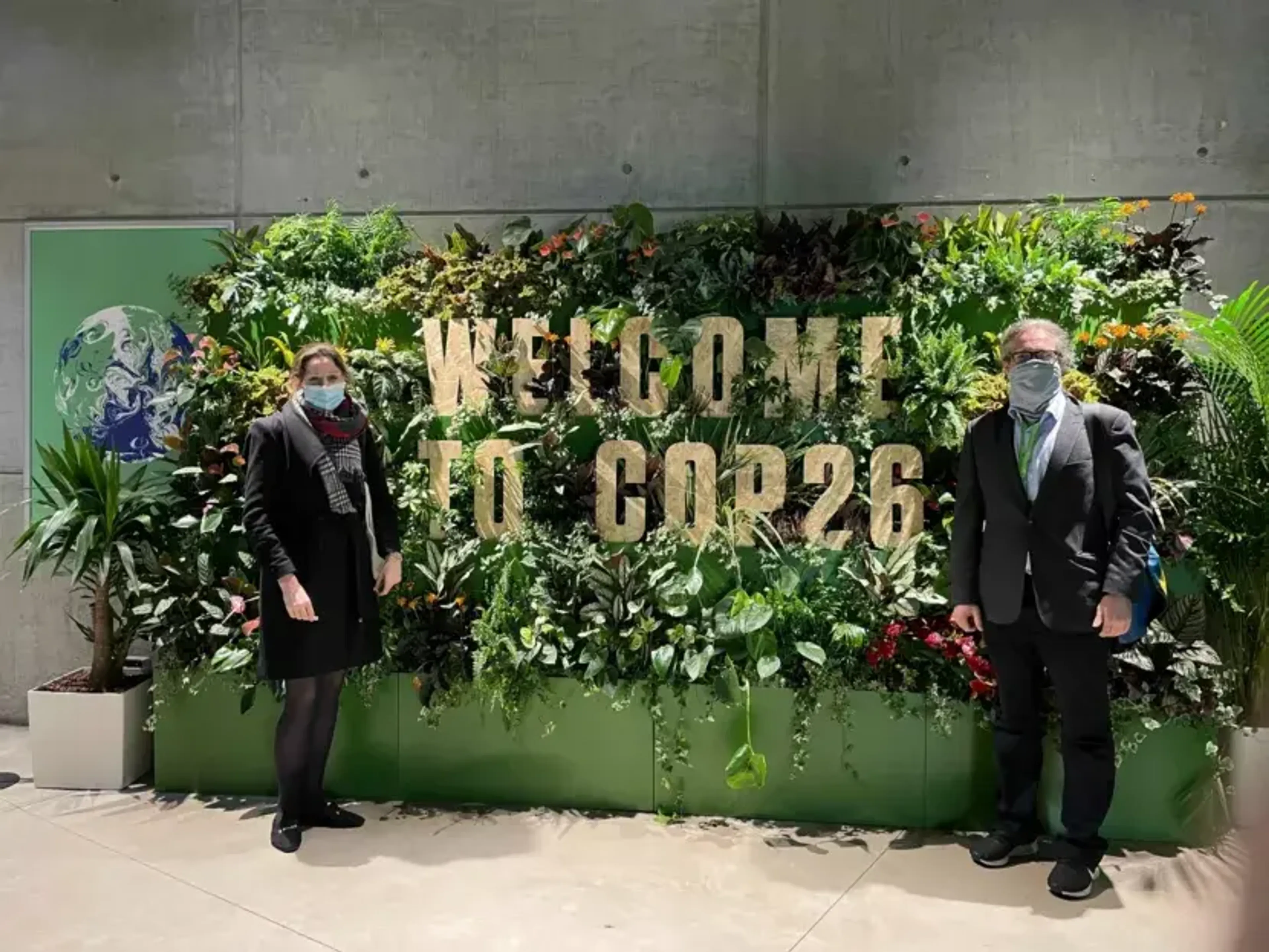
James Stewart
Partner and CTO
Emily Middleton worked as a Partner at Public Digital from September 2018 until July 2024 and set up Public Digital’s international practice, working with multilateral development banks, UN agencies, and philanthropies.
This month James and Emily were at COP26 at Open UK’s Open Tech for Sustainability event. Here they write about five of their takeaways from the conference, and what's next.

We believe the climate crisis and inequality are the greatest challenges of our time. As a purpose-driven organisation, Public Digital needs to understand how our work – and the digital transformation agendas of our clients – can help and hinder addressing these challenges.
Lord Francis Maude’s keynote set the tone for the day: “Open source, hardware, software, data is the heartbeat of digital technology”.
The finance announcements at COP26 are limited, measured progress. The problem is that the world needs deeper, faster action. The plan to add carbon accounting to international accounting standards will be impactful: 100+ countries use IFRS. (Decent backgrounder on IFRS plans.) This will have an impact if policy can move beyond buying carbon offsets.
Improved climate-related disclosures will help make supply
chains less opaque. That makes it easier to build real accountability.
Organisations will also be better able – and incentivised – to use
procurement as a lever to improve sustainability outcomes. There are
obvious parallels with open source: the question isn’t merely what you
buy, but also how you understand your inter-dependencies, and where you
invest to change what’s possible.
Almost
everything that helps us get to net zero will need data that can be
trusted, using open standards. Data will be essential to identify needs,
visualise gaps, show the current state, and measure progress. As a
recent report by the UN Environment Programme says:
“A shift in the global political economy of environmental data is needed to harness the efforts of public and private sectors to jointly generate high quality data and insights as a global public good while avoiding technology and data monopolies.”
The data will show us where adaptation is needed, where inventions are possible, and it will affect finance, emissions reduction and corporate accountability.
Only 1.2% of world's top firms make substantial climate disclosures. We can’t wait for perfect data before we act, but there’s already plenty of data out there, and we’ll only get the deep changes we need if we build on it. As Gavin Starks said, we may not need all actors to be on board - we can increasingly infer activities and use satellites, sensors and other data flows to spot illegal polluting and deforestation.
More reading: How digital technology and innovation can help protect the planet (United Nations Environment Programme).
Part of OpenUK’s event reflected on the power of open source communities – their ability to move quickly, work collaboratively and create new institutional models, such as the Linux Foundation and DHIS2.
But we know that these communities are only effective in the long term if they are diverse, inclusive and properly facilitated. We heard about how the United Nations Office of ICT has deliberately tried to create and nurture a community that is diverse and inclusive; but this is still far from the norm.
What can we learn and borrow from open source movements? We
can be inspired by the new types of business models that open source
software has enabled. We can recognise that we need to experiment with
new ways of working, not
just the technology. We know we may need institutional models that
ensure these communities are properly supported and facilitated over the
longer term. (This doesn’t mean giving up on community and
collaboration!) Above all, effective collaboration needs to be
intentionally inclusive, and well facilitated.
Climate justice matters because “without attention to [climate justice], government policy on climate change may face backlash from groups in society that can ill afford the changes.”
For a commitment to be fully sustainable, social and climate justice is critical. We need every voice at the table, and we need to make sure that they’re heard. Community and consensus were the values that shaped the internet from its earliest days, and we think they matter. Openness is something all organisations should value and practice. (These are two of Public Digital’s positions.)
OpenUK argued for embedding open values, and an
understanding of both open source and sustainability, into education at
all levels. OpenUK’s kids camp
is an example, but more can and should be done to introduce open values
in university courses, MOOCs, bootcamps, and other forms of education.
It is always tempting to design for the best, latest technology. Faster bandwidth, optimally efficient supply chains. But we can see that design for the cutting edge can be wasteful and fragile in a world of increased change.
So thinking about openness, sustainability and inclusivity can point us toward new design principles for digital services that will make better use of resources while also being more resilient. At a very basic level doing the hard work to make visual designs simple makes online services cheaper and faster to access, and use less energy. Building on open standards or using and optimising open source technologies let us have a deeper impact than a narrow focus on specific services in isolation.
We’re excited to be publishing an edition of Signals on the theme of sustainability early in the New Year. We’re actively looking for partner organisations who want to do digital transformation for sustainability. When digital transformation works, it’s because it’s focused on meeting some deeper purpose. Net zero should be the north star for more organisations.
We also want to do more to understand and reduce Public Digital’s climate impacts. More on that soon. In the meantime, thank you to OpenUK for hosting us at COP26!

Partner and CTO